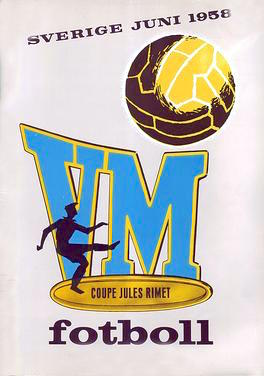Table
| Pos | Team | Pld | W | D | L | GF | GA | GR | Pts | Qualification | | | | |
|---|---|---|---|---|---|---|---|---|---|---|---|---|---|---|
| 1 | 4 | 3 | 1 | 0 | 19 | 4 | 4.750 | 7 | Qualification to 1958 FIFA World Cup | — | 6–3 | 8–0 | ||
| 2 | 4 | 2 | 1 | 1 | 16 | 11 | 1.455 | 5 | 0–0 | — | 8–3 | |||
| 3 | 4 | 0 | 0 | 4 | 6 | 26 | 0.231 | 0 | 1–5 | 2–5 | — |
The three teams in this group played against each other on a home-and-away basis. The group winner France qualified for the sixth FIFA World Cup held in Sweden.
| Pos | Team | Pld | W | D | L | GF | GA | GR | Pts | Qualification | | | | |
|---|---|---|---|---|---|---|---|---|---|---|---|---|---|---|
| 1 | 4 | 3 | 1 | 0 | 19 | 4 | 4.750 | 7 | Qualification to 1958 FIFA World Cup | — | 6–3 | 8–0 | ||
| 2 | 4 | 2 | 1 | 1 | 16 | 11 | 1.455 | 5 | 0–0 | — | 8–3 | |||
| 3 | 4 | 0 | 0 | 4 | 6 | 26 | 0.231 | 0 | 1–5 | 2–5 | — |
| France | 8 – 0 | |
|---|---|---|
| C. Oliver Vincent Dereuddre Piantoni Brahimi | Report |
| Belgium | 8 – 3 | |
|---|---|---|
| Orlans Piters Vandenberg Mees Coppens | Report | Þórðarson R. Jónsson |
| Iceland | 2 – 5 | |
|---|---|---|
| R. Jónsson Þ. Jónsson | Report | Van Herpe Willems Vandenberg |

The 1950 FIFA World Cup was the fourth edition of the FIFA World Cup, the quadrennial international football championship for senior men's national teams. it was held in Brazil from 24 June to 16 July 1950. It was the first World Cup tournament in over twelve years, as the 1942 and 1946 World Cups were cancelled due to World War II. Italy, the two-time defending champions, were eliminated in the first round for the first time in history. Uruguay, who had won the inaugural competition in 1930, defeated the host nation, Brazil, in the deciding match of the four-team group of the final round. This was the only tournament not decided by a one-match final. It was also the inaugural tournament where the trophy was referred to as the Jules Rimet Cup, to mark the 25th anniversary of Jules Rimet's presidency of FIFA.

The 1958 FIFA World Cup was the sixth FIFA World Cup, a quadrennial football tournament for men's senior national teams. It was played in Sweden from 8 to 29 June 1958. It was the first FIFA World Cup to be played in a Nordic country.

The 1962 FIFA World Cup was the seventh edition of the FIFA World Cup, the quadrennial international football championship for senior men's national teams. It was held from 30 May to 17 June 1962 in Chile. The qualification rounds took place between August 1960 and December 1961, with 56 teams entering from six confederations, and fourteen qualifying for the finals tournament alongside Chile, the hosts, and Brazil, the defending champions.

The 1998 FIFA World Cup was the 16th FIFA World Cup, the football world championship for men's national teams. The finals tournament was held in France from 10 June to 12 July 1998. The country was chosen as the host nation by FIFA for the second time in the history of the tournament, defeating Morocco in the bidding process. It was the ninth time that it was held in Europe. Spanning 32 days, it was the longest World Cup tournament ever held.

The 1970 FIFA World Cup was the ninth edition of the FIFA World Cup, the quadrennial international football championship for men's senior national teams. Held from 31 May to 21 June in Mexico, it was the first World Cup tournament held outside Europe and South America, and also the first held in North America. Teams representing 75 nations from all six populated continents entered the competition, and its qualification rounds began in May 1968. Fourteen teams qualified from this process to join host nation Mexico and defending champions England in the 16-team final tournament. El Salvador, Israel and Morocco made their debut appearances at the final stage.

The 1974 FIFA World Cup was the tenth FIFA World Cup, a quadrennial football tournament for men's senior national teams, and was played in West Germany between 13 June and 7 July. The tournament marked the first time that the current trophy, the FIFA World Cup Trophy, created by the Italian sculptor Silvio Gazzaniga, was awarded. The previous trophy, the Jules Rimet Trophy, had been won for the third time by Brazil in 1970 and awarded permanently to the Brazilians. This was the first out of three World Cups to feature two rounds of group stages.
A total of 37 teams entered the 1954 FIFA World Cup qualification rounds, competing for a total of 16 spots in the final tournament. Switzerland, as the hosts, and Uruguay, as the defending champions, qualified automatically, leaving 14 spots open for competition.
A total of 34 teams entered the qualification rounds of the 1950 FIFA World Cup, competing for a total of 16 spots in the final tournament. Brazil, as the hosts, and Italy, as the defending champions, qualified automatically, leaving 14 spots open for competition.
The three teams in this group played against each other on a home-and-away basis. The group winner England qualified for the sixth FIFA World Cup held in Sweden.
The three teams in this group played against each other on a home-and-away basis. The group winner Austria qualified for the sixth FIFA World Cup held in Sweden.
The three teams in this group played against each other on a home-and-away basis. The group winner Scotland qualified for the sixth FIFA World Cup held in Sweden.
The three teams in this group played against each other on a home-and-away basis. The group winner Hungary qualified for the sixth FIFA World Cup held in Sweden.
The three teams in this group played against each other on a home-and-away basis. The group winner Czechoslovakia qualified for the sixth FIFA World Cup held in Sweden.
The three teams in this group played against each other on a home-and-away basis. The group winner Northern Ireland qualified for the sixth FIFA World Cup held in Sweden.
The three teams in this group played against each other on a home-and-away basis. The group winner Yugoslavia qualified for the 1958 FIFA World Cup held in Sweden.
The three teams in this group played against each other on a home-and-away basis. Poland and the Soviet Union finished level on points, a play-off on neutral ground was played to decide who would qualify. The winner Soviet Union qualified for the sixth FIFA World Cup held in Sweden.

The 2013 FIFA U-17 World Cup was the fifteenth tournament of the FIFA U-17 World Cup. The tournament was held in the United Arab Emirates from 17 October to 8 November. Nigeria won the tournament after defeating Mexico 3–0 in the final, claiming the country's fourth title. Sweden won the bronze with a 4–1 victory over Argentina in the third-place play-off match.

The 2019 FIFA Women's World Cup was the eighth edition of the FIFA Women's World Cup, the quadrennial international Women's football championship contested by 24 women's national teams representing member associations of FIFA. It took place between 7 June and 7 July 2019, with 52 matches staged in nine cities in France, which was awarded the right to host the event in March 2015, the first time the country hosted the tournament. The tournament was the first Women's World Cup to use the video assistant referee (VAR) system. This was the second and last edition with 24 teams before expanding to 32 teams for the 2023 tournament in Australia and New Zealand.
Group 2 of the 1970 FIFA World Cup was contested in the Estadio Cuauhtémoc and Estadio Nemesio Díez between 2 and 11 June 1970. Italy won the group, and advanced to the quarter-finals, along with Uruguay, who finished second by virtue of goal difference. Sweden and Israel failed to advance.
The 1958 FIFA World Cup qualification for North, Central America and the Caribbean serves as the preliminary tournament for the region. Six teams entered the tournament to compete for one place in the final tournament.